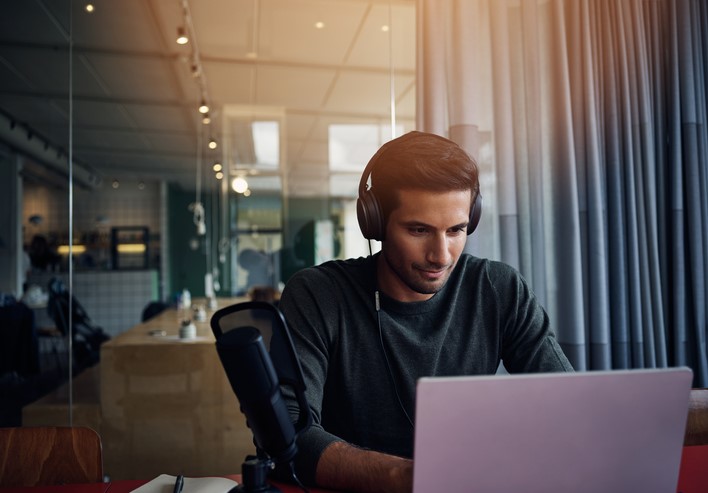What to expect from media training
Wednesday 18th May 2022

Why is media training useful?
Are you starting out in business and hoping at some point to use the media to help? Or just wondering what to do if you ever get interviewed by a journalist? If so, it might be worth considering getting some media training.
Understanding how the media works and getting help to show how best to interact with it will help if the time comes when you want to share information about your business or to publicise a new product or service.
Dealing with the media does not come naturally to most people - it is a game with rules that are helpful to know so you can play effectively.
You need to learn how best to put across your key messages and how to successfully take part in interviews in ways that allow you to show yourself and your business in a positive and attractive light. Learning to frame core messages and how to share stories in ways that interests your audience are all important to keeping your message on track.
What to expect from media training
If you decide to get media training, you would hope to be coached by someone who is an expert in the industry and understands what it is all about. Your training will help you learn the basics of journalism, how to communicate effectively with the media and how to cope with tough interviewers.
You will receive knowledge on all the platforms you can use to get your message out there including Twitter, Facebook, Instagram and other social media channels. You may already be using these but will learn ways to maximise their effectiveness for you.
You will gain tips to communicate well with the media including how to grab the interest of journalists and how to add value to a story to make it more exciting; including anecdotes and business insights for example, making it more entertaining to read or listen to.
The training will also place you in scenarios that mimic situations that you may experience in real life like press conferences and on the spot interviews. You will be shown how to deal with difficult questions - training for how to deal with these can be very useful.
Being an expert in your company doesn’t mean being able to handle the media in a good way. Media training will help to teach you what to expect, what to look for and how to spot the tricks of the trade that are used to get you to say or reveal information that you didn’t want to. Remember journalists are looking for headlines whilst you are looking for good press.
Media comes in the medium of print, radio, television and digital and there are different rules for each one. For radio you need to sound good, whereas for a visual medium you need to be aware of your appearance too - body language is a powerful transmitter of image and media training will help you with how best to project this in the right way.
When should you start media training?
It is best to start media training as soon as you realise you will need it in the future. If you receive good media training you will have the confidence to face it and to come across as credible and reliable.
The training will not only help you to understand the media and to understand what makes a good story, but how to make contact with the right people and to be able to communicate effectively by staying in control of your dialogue, providing you with a set of tools to help when the going gets tough and to keep you from drifting off topic and getting pulled into talking about issues that take control away from you.
Media training will help you to make sure that your story is the story that gets heard.




